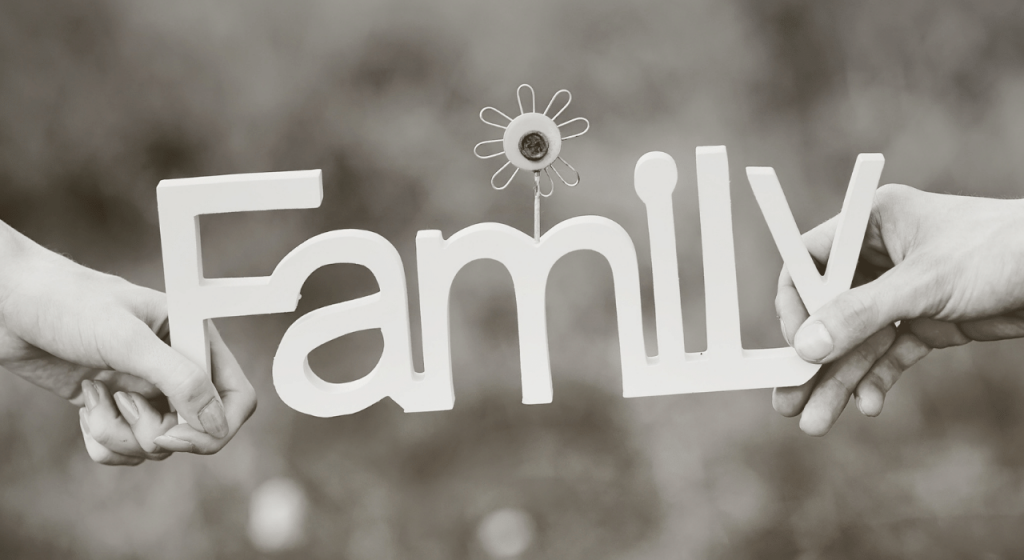I have yet to come across a case in the field of Special Guardianship which is not complex. They are all extremely complex.
When completing a Special Guardianship assessment, there are all the intricacies of family, embroiled with the bureaucracy of the organisation, and inevitably there is going to be a clash.
I want to share with you a case, all details have been anonymised and changed but still reflect the challenges that were encountered with this case.
Background Information
One such case was a Special Guardianship assessment for an aunt and uncle. They were caring for their niece who was of primary school age. She was therefore able to verbalise her views and had some understanding of what was happening, although probably it was just as confusing for her.
One day she was living with her parent and the next she was in the care of a family member. It happened overnight and suddenly after her father found himself on the wrong side of the law. Her mother had not played a role for some while and her whereabouts were unknown.
Tough Decisions in special guardianship assessment.
The assessment of the aunt and uncle as Special Guardians was to look at their ability to care until the child turned 18. And well beyond this age, as many of you with children will know. They do not miraculously move out of home at 18.
By all accounts, they were very experienced parents. They had never had any children services involvement when raising their children who were reaching the end of adolescence and ready to move on with the next stages of their lives.
On paper, practically and emotionally there were no concerns about these applicants caring for a member of their family and their special guardianship assessment had progressed along positively.
It was by all accounts, one of those dream SGO assessments, that are straightforward and applicants understand the concerns and complete what is asked of them.
If only it had been as straightforward…
They instead came to a decision, on their own, that they just could not go back and parent again.
They just felt unable to do so when faced with the long term reality.
They had been there. They had raised their own children already.
They had their own plans for their future. That future had not involved a young child once again.
They were faced with a dilemma. The outcome of the special guardianship assessment was positive in the practical sense.
However they just did not know if they could adapt their life plan in order to do so.

How do you as a family member live with such decisions?
What is it that stops family members from being able to take on board this level of care when it involves a child in their family?
Let’s break it down.
Overnight, your life changes.
You have six weeks, if you are lucky, to suddenly re-write your life plans.
Social workers literally move in alongside the child.
They are there every waking moment.
They are phoning you constantly.
They are wanting to meet you and complete your SGO assessment.
They want you to tell all about your life, unturn every stone.
They want to know your life history, what you liked as a child and who did you play with stuff like that.
It all seems irrelevant in the face of the big picture.
We all have to make hard choices – working through the SGO assessment
The family came to the very hard decision, and I know that they had many sleepless nights and family discussions. In the end they reached the tough decision that they simply could not become Special Guardians.
They just felt unable to become carers once again having reached a stage of life when they were looking forward and ahead to new plans and a new path.
They were literally being asked to drop their dreams and plans.
Special Guardians have to be selfless and give up on everything. Sometimes overnight.
It is not always an easy decision to go forward with the Special Guardianship assessment.
I wanted to highlight that it is not always social workers who are making negative Special Guardianship recommendations.
Sometimes families also know that they just do not have the resources to do so.
As a social worker, looking in, I can only wonder how they felt when coming to that hard decision.
Before you start to judge.
Just because they made that decision, does not mean they don’t care deeply for the child.
But what would it do to a family, to a relationship, to emotional wellbeing, when you raise a child whilst resenting aspects of this care?
Children pick up on the emotions around them. They know intuitively when they are in the way and this could cause them more harm in the long term than good.

Why are tough decisions in Special Guardianship Assessment (SGO) better in the long term?
Let’s unpick this. They had cared for their niece for several months. But when it came to the final decision, and it is not just the social worker making a decision but the prospective applicants as well, they knew their own limits. They just felt that they could not care for another child again in the long term.
Before you, look at them and criticise them, remember it is not their fault they are in that situation.
They afterall, did nothing wrong except be there in a time of need.
They did the best they could. They should at some level be admired for standing up and being clear about what they believe they could offer, that was short term care.
It is better that they say now that they simply did not have the capacity to care for another child at the moment.
It is better that they are realistic now and not a few years down the line when they find it has impacted on their lives and they simply cannot do it anymore.
I cannot blame them they have raised their family. They have done their job as parents. A good one at that too.
So why is there this expectation of them to take on another child and start the process all over again when they have been through all of that?
They have in a sense been there and got the Tee shirt and to put it bluntly, they don’t want another one. It sounds harsh but it is the reality.
What is the Special Guardianship assessment about?
The assessment is not only about assessing the applicants’ capacity, but it should also be a chance for the applicants to assess their own ability to manage a child into the future.
It is a factor that will bubble in the background and an area that will need to be discussed frankly and fully.
In my view, what makes for a good SGO, is one where you work in partnership with the applicants, to consider all options in an open and frank manner.
It’s not always easy as emotions are high and many applicants feel that have to fight the system so to speak that they forget to stop and consider their own physical and emotional capacity to care for another child.
It’s a sad situation, when you know applicants can do this physically, but emotionally they have nothing left to give.
I have come across many families who have felt this way and in the end withdraw from the assessment. It is a situation that you will come across, in the field, when assessing special guardians.
Prospective special guardians need to be honest with themselves.
It is not going to be a bed of roses, it’s going to be tough raising a child within their family.
They will be dealing with contact. It could be a prison in this case. A mother whose whereabouts were unknown often means there is a lot more on special guardians to manage.
Special Guardians have to manage contact with family members who they may not have spoken with, or where there are ongoing tensions. But they have to put these aside for the children in their care and support them to have a positive contact experience with their parents. It is all these additional demands that will need to be considered.
Not only do they need to manage these unknowns, they will also need to help a child emotionally through what is happening for them as they grow up and start to ask questions about their life story and why they are not living with their parent/s.
Special Guardians will be trying to juggle all of this whilst likely holding down a full-time job or raising a family of their own.
It is never going to be easy.

What is the purpose of the special Guardianship assessment?
Your special guardianship assessment should also help prospective carers look at the situation with reality.
Sometimes that reality might not be pretty to look at.
When a family member just simply cannot do it for their own personal reasons.
In some ways, it is the best decision for them, when they can come to this of their own fruition, early on in the process.
This is part of the SGO assessment process, helping families to think about what life will be like caring for a child in the future.
They will need to look at how this will impact on their lives.
What does Special Guardianship really mean for families.
Maybe they are grandparents, aunts or uncles. They are at differing stages of their lives and maybe they had plans to do other things.
Should they be expected to drop everything they had planned for all their lives and care for their own kin?
Some would say yes. Family is family and we should do all we can to ensure that a child remains in a family.
But what lived reality will that child have in that family knowing that they didn’t really want them there in the first place?
Would they grow up with a sense of belonging or a sense of knowing that they were in the way?
We are not here to judge families for the decisions that they come to.
We are here to ensure that they understand what taking on a Special Guardianship Order really entails.
To ensure that they are able to care for a child until they are 18 and as I tell Special Guardians, it is 18 and beyond, because they never really leave home in the end.
Sometimes becoming a Special Guardian is not easy and it is even harder when prospective applicants have to decide not to become a Special Guardian.
Special Guardianship Info – Giving SGO a voice
